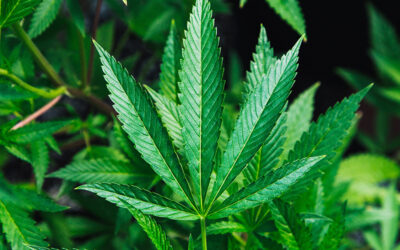Updated October 2019
Recreational marijuana remains illegal in Connecticut as of now, but the state has passed comprehensive medical marijuana legislation and has even opened up its program to minors. Learn more about Connecticut marijuana laws below.
Recreational Marijuana in Connecticut
Is marijuana legal in Connecticut? No– the use, possession, and distribution of marijuana for recreational purposes are illegal and charged as a civil penalty. First time offenders caught in possession of ½ ounce of marijuana is susceptible to a $150 fine. Repeat offenders or offenders caught with larger quantities can receive imprisonment of 1 year to 10 years and fines ranging from $1000 to $5,000.
A majority of Connecticut voters support marijuana legalization. Witha pro-cannabis governor and enough cannabis supporters in the State Legislature, Connecticut is poised to legalize recreational marijuana sooner rather than later.
Medical Marijuana in Connecticut
Gov. Dannel Malloy signed into law House Bill 5389 in 2012 to legalize medical marijuana in Connecticut. Under the law, qualified patients can possess the amount that is ‘reasonably necessary’ for a one month’s supply. Patients must always have their valid registration certificates on hand to avoid arrest, prosecution, and penalties.
Connecticut’s medical marijuana program does have limitations as to who can be a qualified patient:
- Must be a resident of Connecticut
- Must not be an inmate
- Must not be under the supervision of the Department of Corrections
If these conditions are not fulfilled, then individuals cannot possess, use, or cultivate medical marijuana regardless of their medical condition.
Medical marijuana can be sought for the following medical conditions:
- Amyotrophic Lateral Sclerosis (ALS)
- Cachexia or Wasting Syndrome
- Cancer
- Cerebral Palsy
- Complex Regional Pain Syndrome
- Crohn’s Disease
- Cystic Fibrosis
- Epilepsy
- Glaucoma
- HIV or AIDS
- Hydrocephalus with Intractable Headache
- Interstitial Cystitis
- Intractable Headache Syndromes
- Intractable Neuropathic Pain
- Intractable Spasticity
- Irreversible Spinal Cord Injury with Objective Neurological Indication of Intractable Spasticity
- Median Arcuate Ligament Syndrome (MALS)
- Multiple Sclerosis (MS)
- Muscular Dystrophy
- Neuropathic Facial Pain
- Osteogenesis Imperfecta (also called “Brittle Bone Disease”)
- Parkinson’s Disease
- Post Herpetic Neuralgia
- Post Laminectomy Syndrome
- Post-Surgical Back Pain with a condition called Chronic Radiculopathy
- Post-Traumatic Stress Disorder (PTSD)
- Severe Psoriasis and Psoriatic Arthritis
- Severe Rheumatoid Arthritis
- Sickle Cell Disease
- Spasticity or Neuropathic Pain associated with Fibromyalgia
- Terminal Illness Requiring End-Of-Life Care
- Tourette Syndrome
- Ulcerative Colitis
- Uncontrolled Intractable Seizure Disorder
- Vulvodynia and Vulvar Burning
- Other medical approved by the Department of Consumer Protection
On May 17, 2016, Gov. Malloy signed House Bill 5450, allowing patients under 18 to get legal access to medical marijuana. The law went into effect on October 1, 2016.
Under the law, minors with a written certification from two doctors and a written statement of consent by a parent or guardian can get legal access to medicinal cannabis for:
- Cerebral Palsy
- Cystic Fibrosis
- Epilepsy (Severe or Intractable)
- Intractable Neuropathic Pain
- Muscular Dystrophy
- Osteogenesis imperfecta (also called “Brittle Bone Disease”)
- Spinal Cord Injury (Irreversible)
- Terminal Illness
- Tourette Syndrome
The state’s Medical Marijuana Program Board of Physicians in September 2019 voted to add chronic pain and Ehler-Danlos syndrome as qualifying conditions. The legislature’s regulations review committee has final say whether the conditions will be added.
Consumption of CBD from Hemp Oil in Connecticut
Hemp-derived CBD products are legal under Federal Law in the United States; however, individual state laws are dynamic and fluid. Individual states may enact their own laws governing hemp-derived CBD.
Cultivation of Cannabis in Connecticut
The cultivation of marijuana for medical or personal use is now allowed under Connecticut law.
The production of industrial hemp in Connecticut, however, is legal. In response to the legalization of hemp with the passage of the 2018 Farm Bill, Gov. Ned Lamont in May 2019 signed into law legislation that provides Connecticut farmers with an opportunity to “bolster their profits with hemp.” The Connecticut Department of Agriculture must still establish its program and get it approved by the federal government. The new commercial hemp program will replace a research pilot program, put into place by Gov. Malloy in July 2015. The previous hemp law amended statues to allow institutions of higher education or the state department of agriculture legalize to grow industrial hemp in Connecticut for research purposes.
Legal Status of Other U.S. States
Stay up to date on the latest state legislation, referendums, and public opinion polls. Our Marijuana Legalization Map allows you to browse the current status of medical and recreational marijuana laws in other U.S. states and territories.
Sources
- https://www.cga.ct.gov/2011/rpt/2011-R-0489.htm
- https://en.wikipedia.org/wiki/Legality_of_cannabis_by_U.S._jurisdiction#.C2.A0
- http://www.votehemp.com/state/connecticut.html
DISCLAIMER: The information contained in this website is for general information purposes only; it does not constitute legal advice. Although we endeavor to keep the information up to date and correct, we make no representations or warranties of any kind, express or implied, about the completeness, accuracy, reliability, suitability or availability with respect to the website or the information, products, services, or related graphics contained on the website for any purpose. Therefore, any reliance you place on such information is strictly at your own risk.






